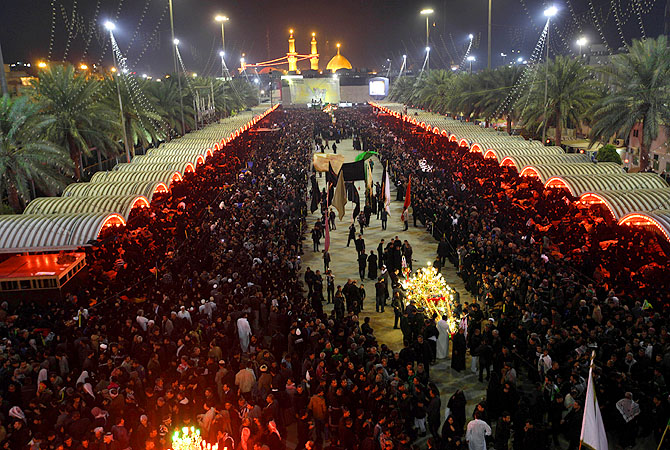
In the month of Muharram 61 AH (approx. 20 October 680 AD), an event took place in Iraq at a place known as Kerbala on the bank of the river Euphrates. It seemed in those days insignificant from the historical point of view. A large army which had been mobilised by the Umayyad regime besieged a group of persons numbering less than a hundred and put them under pressure to pay allegiance to the Caliph of the time and submit to his authority. The small group resisted and a severe battle took place in which they were all killed.
It appeared at that time that like hundreds of similar events, this battle would be recorded in history and forgotten in time. However, the events that occurred on the 10th day of Muharram in Kerbala were to become a beacon and an inspiration for future generations. In this article, we shall examine briefly the principal adversaries.
Why is Husain (A) regarded as the "leader of the martyrs" ? It is because he was not just the victim of an ambitious ruler. There is no doubt that the tragedy of Kerbala, when ascribed to the killers, is a criminal and terrible act. However when ascribed to Husain (A) himself, it represents a conscious confrontation and a courageous resistance for a sacred cause. The whole nation had failed to stand up to Yazid. They had succumbed to his will, and deviation and regression towards the pre-Islamic ways were increasing.
Passiveness by Husain (A) in this situation would have meant the end of Islam as we know it. Thus Husain (A) took upon himself the responsibility of the whole nation. The greatest tragedy was that one who stood up for the noblest of causes, the defence of Islam, was cut down in so cruel a manner.
It is for this reason that the sacrifice of Husain (A) is commemorated annually throughout the Muslim world. Our sorrow never abates as we relive the tragedy. As Allama Iqbal says in his Baqiyat (in Urdu):
Ronay wala hoon Shaheed-e-Kerbala key gham men main,
Kya durey maqsad na dengey Saqiye Kausar mujhey
I am one who weeps at the plight of the Martyr of Kerbala
Won't the reward be given to me by the Keeper of Kauser (Imam Ali (A))
The commemoration of Ashura on the 10th of Muharram every year serves to remind us of the sacrifices of the family of the Prophet (S). It also makes us aware of the people, then and now, who tried to destroy Islam and the family of the Prophet (S) and all that they stood for - as well as those who watched, listened and did nothing.

